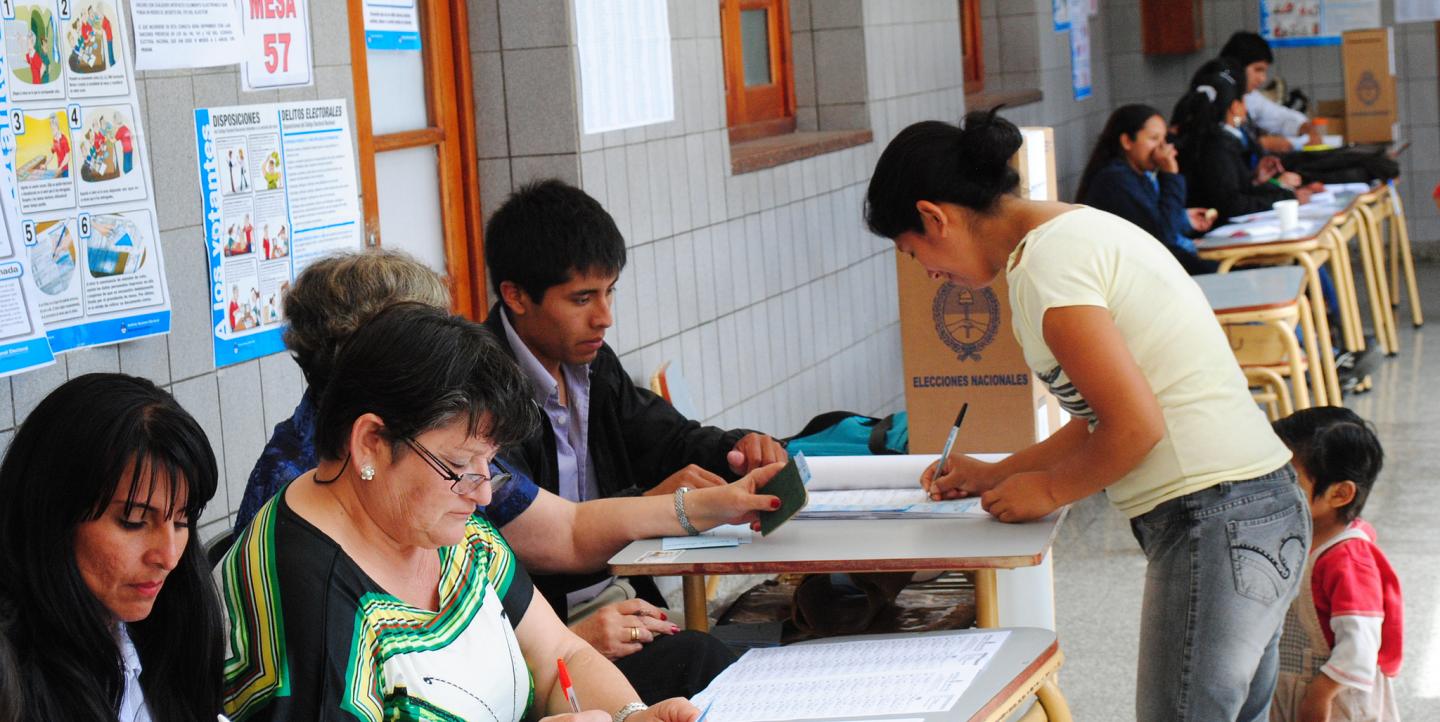It's voting time in several Spanish-speaking countries.
Guatemala will hold general elections September 6. Argentines will head to the polls October 25 to decide who will succeed the two-term President Cristina Fernández de Kirchner.
Venezuela’s legislative elections December 6 could leave President Nicolás Maduro – who’s been accused of censoring the opposition and whose government is hacked by a deep economic crisis – with a parliamentary minority. And Spain’s economy will likely be a big campaign issue leading up to elections around December 20.
To help journalists prep for these elections, IJNet Spanish held a live chat on covering elections and verifying campaign data, featuring Dulce Ramos, editor-in-chief of the Mexican news platform Animal Político, and Pablo M. Fernández, editorial innovation coordinator at Chequeado, an Argentinian fact-checking site dedicated to screening public statements.
Here we summarize some of the tips they provided on how to achieve original, accurate and even entertaining coverage during election times.
Prioritize the needs of your audience
When covering political campaigns, sometimes journalists run the risk of merely repeating what politicians say. To avoid this, Ramos advised basing coverage on your audience’s concerns, and staying in tune with the accusations your audience makes about certain candidates and campaigns.
In Mexico, citizens turn to social media to “complain and complain,” she said, and there’s always someone “who is making a big claim."
This is not to say that every complaint or accusation should be considered valid, though. "Our job is to investigate and verify everything, but don’t underestimate the value of the information the audience can give you," she said.
Whenever possible, Ramos recommends providing a qualitative assessment of what voters are expecting from the polls, and not just to rely on stats and surveys.
“I think it's very important to provide a picture of how voters arrive to the polls. What’s their mood? How do they feel about the situation in their countries? That explains the spirit of the campaigns and, in part, the electoral outcome, but we rarely stop and cover that mood.”
Chequeado uses its audience as a resource when deciding which political statements are going to be checked. "We constantly ask our audience to tell us what they want us to verify, and during election times we get a lot of requests related to campaign promises," Fernández said. To facilitate this exchange, the site uses social networks, and also its own Chequeo Colectivo platform, where the public requests certain claims they’d like to see fact-checked.
Distrust surveys
As we approach election day, there’s increasing speculation about the outcome, based on opinion polls whose source of funding and methodology is usually undisclosed. Fernández said that whenever confronted with the results of a survey, journalists must try to find out who ordered and paid for it, something that can turn out to be "very difficult."
After elections take place, Chequeado often shows “the gap between what the pollsters and the actual election results.” According to Fernández, “it’s a way to raise awareness that what pollsters and surveys say is not written in stone."
Analyze public discourse
During the chat, a participant asked: “What added value can journalists provide when reporting on candidates' proposals?” Ramos recalled an interactive game her team made when working at newspaper Reforma. Readers would respond to questions about some key issues for Mexico’s 2003 elections, and the game would pair readers with the candidate who most resembled their views.
Animal Político also verifies political statements on its El Sabueso (The Hound) section, dedicated to checking politicians’ statements. On September 2, they did a live analysis of the third government report of Mexican President Enrique Peña Nieto.
When Chequeado analyzed campaign spots and interviews to determine the Argentine candidates’ concrete proposals, they found four campaign ads lacking a single verifiable remark.
When verifying public statements, Fernández advises using both official and alternative sources.
"When a person we are checking says something, we try to reach [them] to find out how the statement was informed." After reviewing the information they provide, or when it's impossible to access the source, Chequeado uses alternative sources such as NGOs, academics and other credible sources.
Check court records
In Mexico, as in many countries, governments have constitutional immunity, which for Ramos is "a great retreat for not having to face the legal consequences of their wrongdoings."
Therefore, in the recent federal elections, Animal Político wondered: "How do we know if all parliamentary candidates in Mexico are honest people?" That’s how the series #SeBuscaFuero (Seeking Constitutional Immunity) was born.
The site cross-checked the names of the 9,000 deputy candidates with court records. "We found nine disturbing profiles: alleged killers, officials banned from public service, women abusers, scammers, etc."
Humor is always welcome
“Politicians talk too much and they seem to be everywhere," Ramos said, noting that the TV propaganda of Mexican political parties during this year’s June federal elections exceeded 256 hours during the campaign.
Animal Político launched the hashtag #FAILecciones: a pun of #fail and the word "elections," inviting readers to send campaign initiatives that seemed ridiculous, and “all the nonsense they did to promote themselves,” Ramos said. Animal Político received over 200 tweets.
"The logic (somewhat jokingly) was: if they laugh six years [presidential term limits in Mexico] at us, let’s laugh at them and their campaigns for a while; at the way they waste public money and how they think they can get our vote," she said.
After receiving the audience’s submissions, the site selected the best material and then let the audience choose what they found to be the most ridiculous propaganda. "It was really fun and it engaged our readers," she said.
But besides the humorous side, Ramos also said that this proposal showed "the relation between the candidates and the rule of law, because many of them used cartoon characters that are copyrighted, or plagiarized pop music for their jingles without having asked for the rights."
Image: 2013 legislative elections in Tucumán, Argentina en 2013, CC-licensed on Flickr via Jaramillohectosergio.


